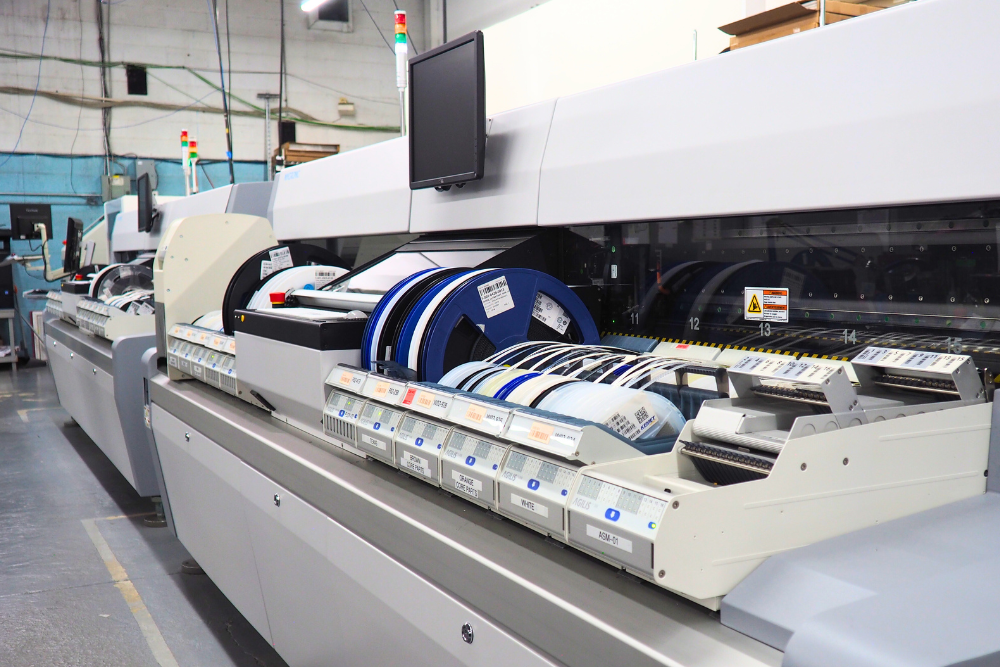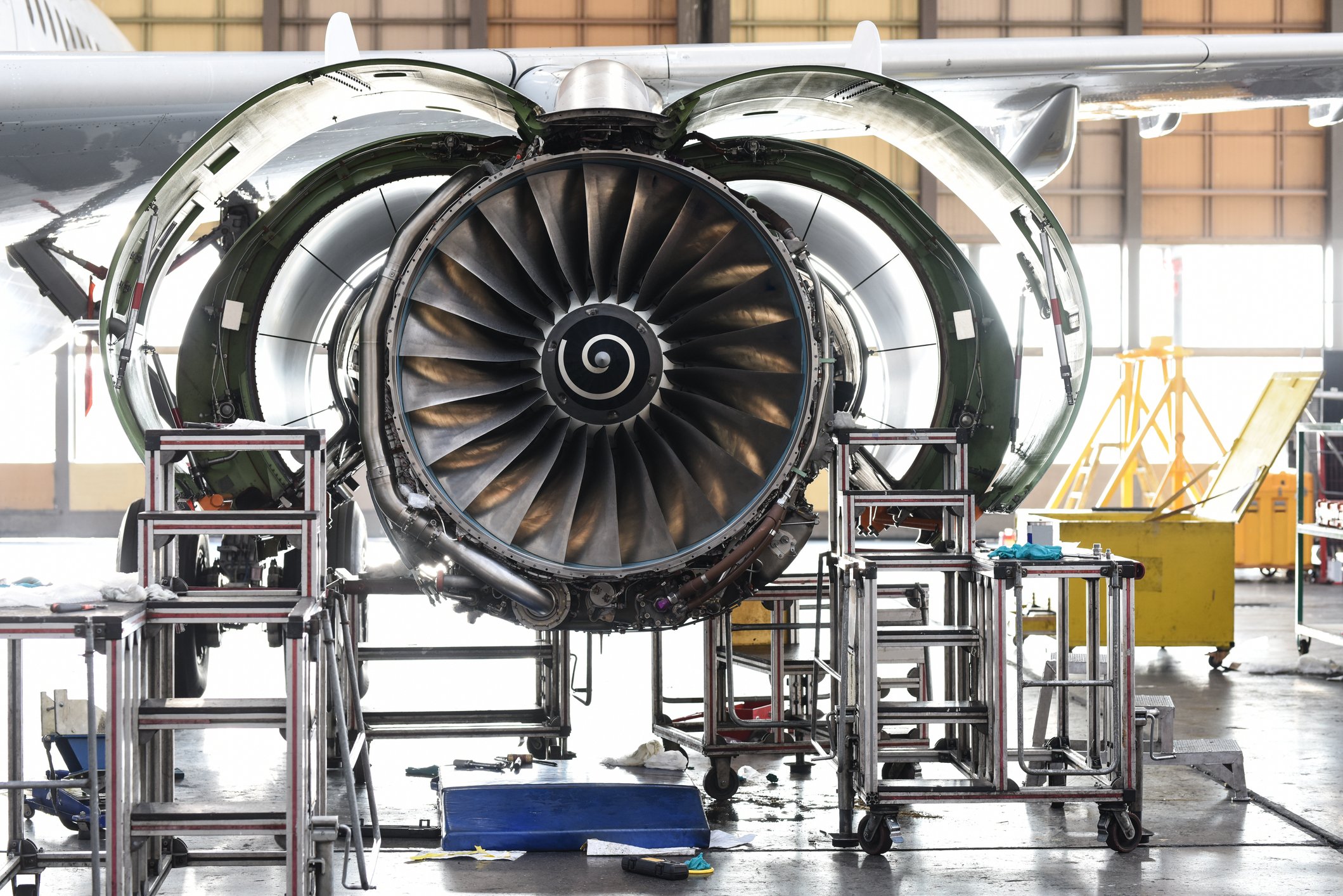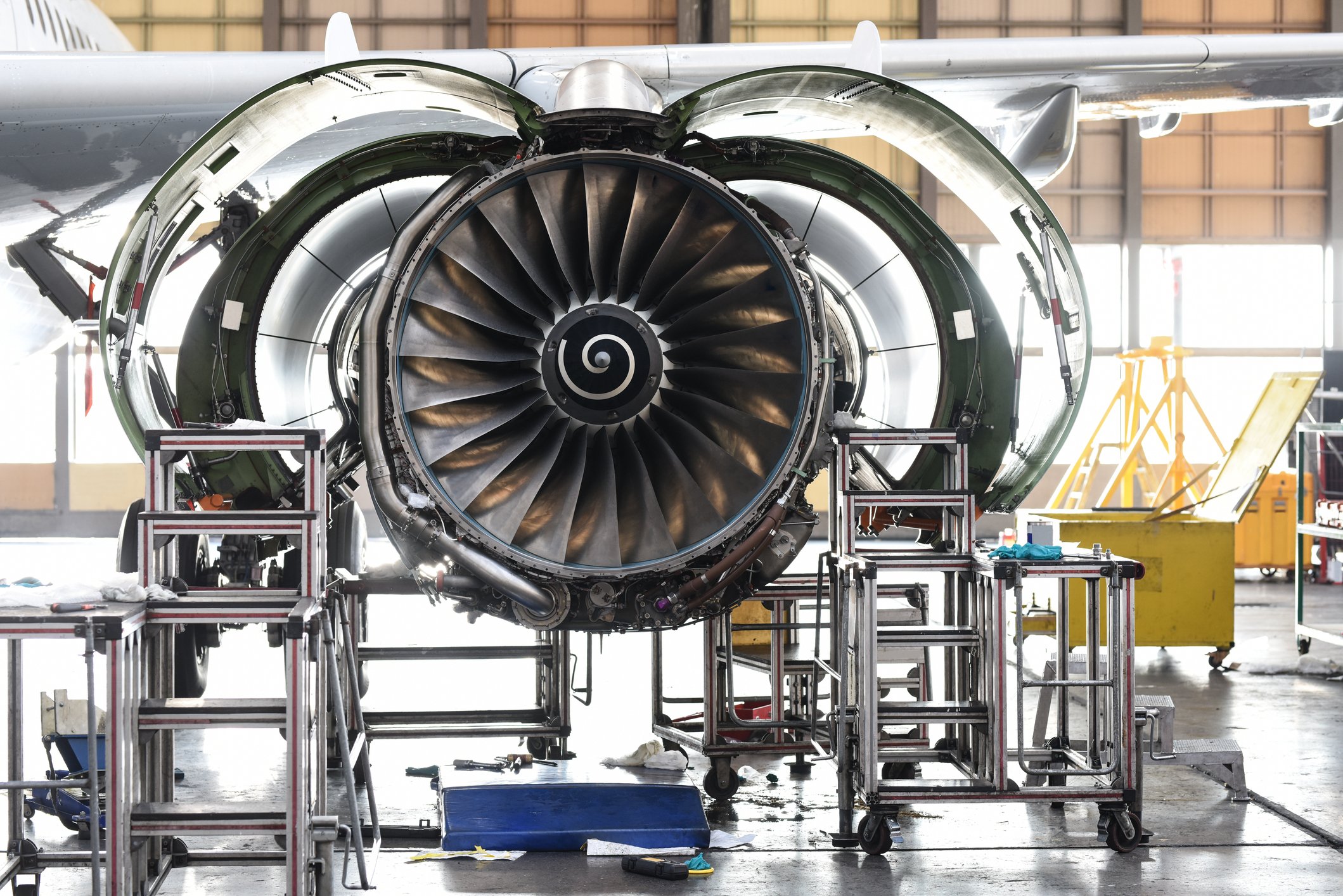The dramatic growth in the aerospace industry has played a massive role in lifting shares of industry supplier TransDigm Group (TDG 9.66%) and its business in producing the components and systems that go into many aircraft. Strong demand for commercial airplanes has filtered down to boost TransDigm's results for years now, and coming into Monday's fiscal fourth-quarter financial report, TransDigm investors had no reason to expect anything but more of the same. Yet even though TransDigm's results were relatively solid, its guidance for fiscal 2017 left many investors wondering if the best of times might be ending for the aerospace supplier. Let's look more closely at how TransDigm Group did and whether it can maintain altitude going forward.

Image source: Getty Images.
TransDigm sees growth slow
TransDigm Group's fiscal fourth-quarter results were strong, but they didn't entirely live up to everything that investors have grown used to seeing in recent quarters. Revenue was up just 8% to $875.2 million, and although that was only slightly less than the 9% growth rate that those following the stock were looking to see, it was a substantial deceleration from the high-teens percentage growth that TransDigm has managed recently. Similarly, adjusted net income was up again, but only by 15% to $183.6 million, which was less than half the pace of growth last quarter. That figure produced adjusted earnings of $3.29 per share, topping the consensus forecast by $0.09 per share.
Looking more closely at TransDigm's results, the company dealt with headwinds that it hasn't faced very often in the past few years. Organic sales actually fell from year-ago levels, with only TransDigm's acquisitions over the past year producing positive sales growth. Without the roughly $89 million in sales contributions from acquisitions, TransDigm would have seen sales drop by about $24 million, or around 3%.
Income gains came from several sources. Higher sales drove some of the increase on the bottom line, but TransDigm also reported that its proprietary products did quite well, helping to boost the company's operating margin. Productivity efforts and a more favorable overall product mix also helped increase margin figures, and a decline in tax rates also helped generate greater profit. Only higher interest expenses held back TransDigm's earnings growth.
TransDigm CEO Nicholas Howley celebrated the news. "Fiscal 2016 was another good year for TransDigm," Howley said. "We once again saw a number of attractive M&A opportunities that results in the acquisition of three good proprietary aerospace businesses." The CEO also pointed to the coming special dividend and some stock repurchase activity that combined to help shareholders.
What's ahead for TransDigm?
The problem for TransDigm, however, is that its fiscal 2017 outlook didn't give investors everything that they had hoped to see. The company said that it anticipated annual net sales of between $3.515 billion and $3.565 billion, which would be up roughly 11% to 12% from fiscal 2016 figures. However, that's slower growth than the 13% consensus forecast among those following the stock.
Moreover, although the revenue shortfall would be somewhat minor, more dramatic slowdowns in earnings growth could be more troubling. TransDigm predicted adjusted earnings of $11.84 to $12.12 per share, which would be up just 3% to 5% from 2016's final numbers. By contrast, investors wanted to see 12% growth to $12.80 per share, and that was therefore a big adjustment in many shareholders' eyes.
In response, TransDigm shares lost ground, falling 7% in the day's session following the morning announcement. Low expectations leave TransDigm in a good position to exceed them if the aerospace industry remains strong, but uncertainty about the future is clearly holding some investors back in their optimism about TransDigm's prospects for the coming fiscal year.






